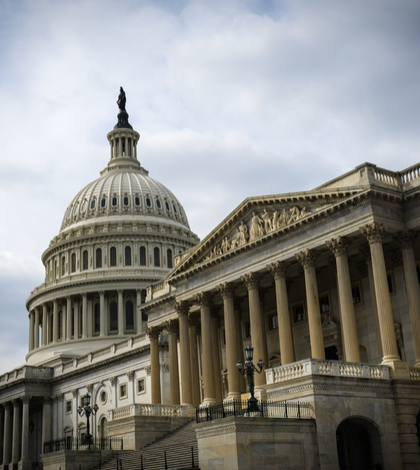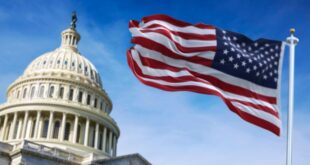Looking to assist low-income households to pay for rising sewer and water bills, U.S. Senator Kamala D. Harris (D-California) has introduced the Water Affordability Act of 2018 (S.3015). The legislation aims to have the Environmental Protection Agency (EPA) establish a pilot program — named the Low Income Sewer and Water Assistance Program (LISWAP) – whereby award grants would be made to public water utility companies to assist low-income households with bill repayment.
The Clean Water Act, a U.S. federal law, was originally passed in 1972 and later amended in 1977 and 1987. Originally known as the Federal Water Pollution Control Act, the Clean Water Act regulates the discharge of pollutants into the nation’s surface waters, including lakes, rivers, streams, wetlands, and coastal areas.
Communities working to abide with the federal Clean Water Act regulations are finding that compliance is costly and the costs passed on to customers is placing a burden on low-income families. The potential for participation in the LISWAP by public water agencies would need to demonstrate that status as an ‘Eligible Entity.” Eligible entity would be defined as:
- Having a household(s) located within 5 miles of an environmentally hazardous site, including a waste disposal, manufacturing, and energy production facilities
- A household located in an area with a high minority population and a high environmental indicator as defined by the EJScreen tool of the Environmental Protection Agency
- A household that has an income that — as determined by the state in which the household is located, does not exceed the greater of an amount equal to 150 percent of the poverty level for that state and an amount equal to 60 percent of the median income for that state.
“No family should have to choose between paying for safe, clean drinking water and putting food on the table. Access to affordable clean water is a fundamental right,” said Senator Harris. “In California alone, rates for water have risen by as much as 71 percent in Los Angeles and as much as 127 percent in San Francisco within the past decade. That places a huge burden on families just trying to make ends meet, and it’s our responsibility to act.”
Numerous organizations throughout the country have weighed-in on Sen. Harris’s legislation including Tim Quinn, Executive Director of The Association of California Water Agencies (ACWA). “The Association of California Water Agencies is pleased to support The Water Affordability Act by U.S. Senator Kamala Harris. This bill establishes a grant based pilot project to help those most in need pay their sewer and drinking water bills. ACWA represents 440 public water agencies that together supply over 90 percent of the water delivered in California for residential, agricultural, and industrial uses. Ensuring access to safe, reliable water is a priority for ACWA member agencies.”
“We commend Senator Harris for addressing such a critical issue. Access to safe, clean water, and reliable wastewater and stormwater systems, should not be a privilege for the few,” said Rosemary Enobakhare, director for Clean Water for All Coalition based in Washington, D.C. “No one should have to suffer from lead contamination, untreated sewage, or polluted runoff, as these problems have severe impacts on the health, safety, and economies of our communities. Water infrastructure funding must be prioritized for communities that have critical infrastructure needs and lack the ability to meet those needs. Senator Harris saw the need and is working to address one of our country’s greatest challenges by creating meaningful water infrastructure legislation that provides and promotes clean, affordable water for all while protecting our environment and our communities.”
At a more localized level the San Francisco Public Utilities Commission General Manager Harlan L. Kelly said, “Every human has a right to safe, clean and affordable water. In San Francisco, we work hard every day to provide high-quality public utility services that are affordable for all of our customers, including ratepayers in our most vulnerable communities. But local government can’t do it alone. As a country, we must come together and leverage federal partnerships and resources to make this life sustaining resource available and affordable to everyone. This proposed grant program will bring us one step closer to making that a reality.”
Sen. Harris’s Water Affordability Act of 2018 (S.3015) has been referred to committee.
 California Water News Daily Your Source For Water News in California
California Water News Daily Your Source For Water News in California


